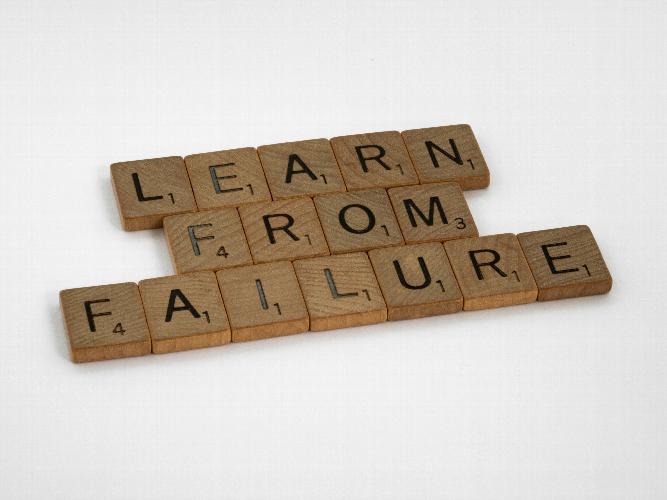Something that has helped me a lot is understanding that how other people respond to my failures does not provide an accurate assessment of my personality and worthiness as a human, but instead indicates how that person relates to failure.
It can be hard to accept failure when people point the finger at each other for mistakes they make. Changes in our relationship with failure must start with us, regardless of how negative we are as a group towards it. Whether or not the environment is safe, failure hurts every time. As such, we steer clear of it whenever possible. We either refuse to start at all, give up when things get difficult, or choose a simpler, safer alternative. The pleasurable sensation of relief that each of those options brings makes them all addicting. Phew! Today, I am spared from dealing with that. We do that enough times and it becomes a pattern in our lives that keeps us trapped in a comfort zone.
If the opposite of resisting failure is accepting it as a part of growth and learning, how do we do that?
It is one thing to communicate something intellectually, it is quite another to feel it and truly believe it in the moment. Saying it is only useful if you can buy into it. Belief is everything. So we need to say something that we can buy into. Therefore, it is no use trying to convince ourselves that it is safe to fail. We cannot guarantee how others will react. There will always be critics. Not everyone is going to help you up when you fall. Our only option is to commit wholeheartedly to doing that for ourselves. Start by recognising that coming back from failure cannot be dependent on others. Using support that is available is always a good idea, but we cannot always count on someone else being there, so committing to ourselves that we will take responsibility to tend to our wounds with compassion and dust ourselves off after a fall is essential if our resilience is not to be dependent on others doing that for us.
Solution Focused Hypnotherapy combines modern psychotherapy with hypnosis and uses gentle techniques that can help you turn failure into a learning experience as you keep moving forwards in line with what matters most to you.

